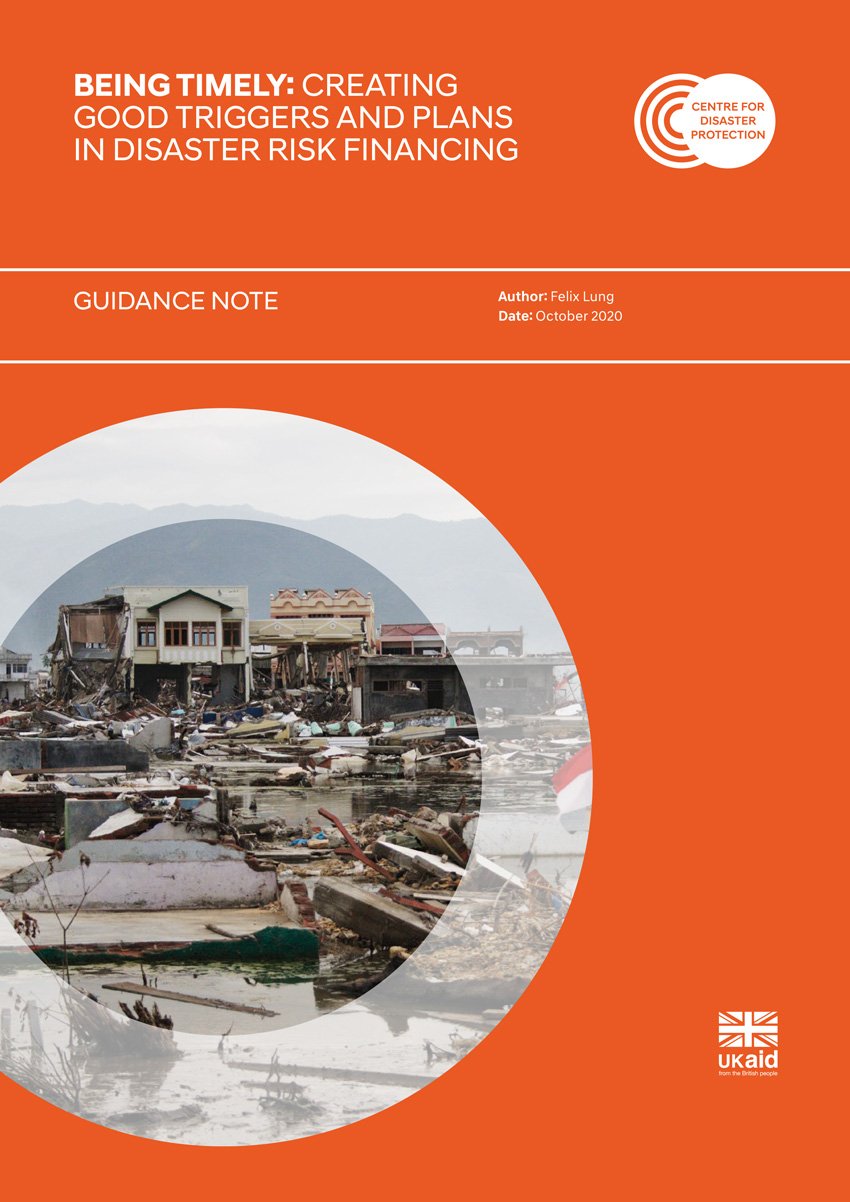
PUBLICATIONS CENTRE

BEING TIMELY: CREATING GOOD TRIGGERS AND PLANS IN DISASTER RISK FINANCING
This guidance note offers practical guidance on contingency planning and triggers for preparing before a disaster strikes to support a faster, more coordinated, and ultimately, more effective response.

IMPROVING CONSTANTLY: EMBEDDING SCRUTINY AND LEARNING IN DISASTER RISK FINANCING
There is currently little in the way of rigorous evidence of impact or established ‘best practice’ in DRF. It is important, therefore, that we engage in scrutiny, be open to learning and willing to be held accountable. This guidance note sets out practical ways to ensure quality, independent scrutiny and improved learning in your DRF initiatives.

CREATING POWER FOR PEOPLE FACING RISK: THE ROLE OF PARTICIPATION IN DISASTER RISK FINANCING
Ensuring the inclusive participation of people in DRF is essential but challenging. It builds trust and empowers the public to demand greater accountability of governments and reward them for reliable disaster support. This guidance note gives practical advice on consulting and involving communities in decision-making that impacts their lives.

ALIGNING WITH THE BIGGER PICTURE: THINKING STRATEGICALLY IN DISASTER RISK FINANCING
A DRF programme can be sound from a technical angle—but when it fails to consider the broader environment, its impact is diminished. This publication explains the importance of thinking strategically and sets out four principles for taking a strategic approach, with practical advice and resources.

ANTICIPATING THE IMPACT OF COVID-19: PATHWAYS AND TIMING OF HOUSEHOLD WELFARE SHOCKS
This discussion paper examines the unequal impacts of the pandemic across different groups, the potential consequences for long-term inequality, and the implications of both of these for policy. Although realtime data on the impact of covid-19 in developing countries is currently scarce, early data from surveys during the crisis period, together with available evidence from past shocks, form a useful basis for the discussion.

THE FUTURE OF CRISIS FINANCING: A CALL TO ACTION
The Future of Crisis Financing: A Call to Action sets out a new vision for international crisis financing, based on planned approaches and appropriate financing packages and instruments.

BASIS RISK IN DISASTER FINANCING FOR HUMANITARIAN ACTION
This insight paper examines the challenge of handling basis risk in disaster risk financing systems. It argues how the use of data and management of basis risk has the potential to significantly increase the neutrality and impartiality of humanitarian decision-making, offering a new type of financing and increased accountability.
